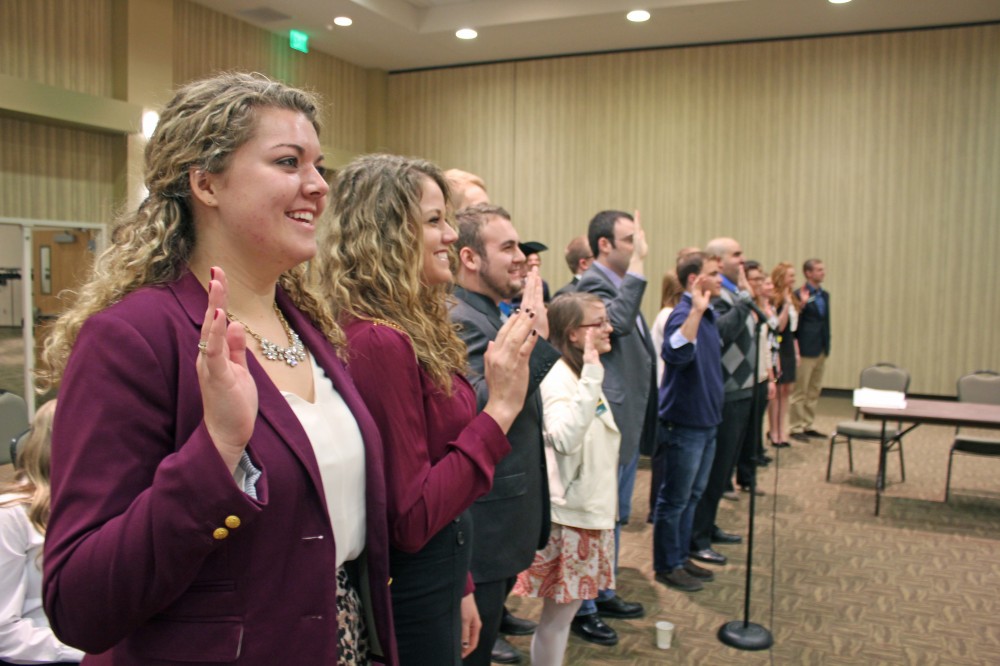
Student senators are sworn in after 2014 student body elections.
Student body elections aren’t just about president and VP.
The Wednesday-Thursday elections will also see 26 people running for the student senate. There are 36 seats open for senate next year, with two instances of four people running for two spots.
Mathew Warsocki, chief justice of student government, said that “Senate candidates can campaign in any way they want to, within the campaign timeline,” adding candidates can spend money although no one has to date.
Senate candidates have to promote and campaign themselves. Warsocki said that “if a voter does not know a candidate, they can write in one of their own.”
Elijah Gill, running for residence hall senate next year, said he is running for senate because he “personally likes the idea of serving other people.”
Voting takes place online that can be accessed from a banner link on the NDSU homepage and is the same basic structure that is used for the homecoming elections.
Students will vote on multiple items: the president/vice president ticket, their residential senators (on campus, off campus or university apartments), their college’s senator and any constitutional amendments or ballot initiatives.
To run for senate on the ballot, candidates need 25 signatures of “whatever sections you want to represent” and an application, Warsocki said.
However, if an application is not submitted, students can still attempt to run a write-in campaign.
“NDSU Student Government, with the exception of the presidential debates, promotes the voting itself only,” Warsocki said. “It is up to the candidates to promote themselves.”
Gill said “each senator represents about 1,000 students” and they “try to meet with different organizations and groups on campus so that they know how student government works and they know that they have a venue to get their word out there.”
Those running for senate can run to represent residence halls, graduate programs and various programs around campus.
Gill was involved as a student senator this semester but could only represent the college or university studies and said that “next year, hopefully (he) will represent the residence halls on campus.”
Unofficial election results will be released Thursday with the election certified by Friday.
Ballot records will be deleted 30 days after the certification of an election.
If a student wishes to cast a ballot for a write-in candidate they must type a “reasonable representation of the candidate’s official registered name” in the space designated for write-in candidates, the election code states.
